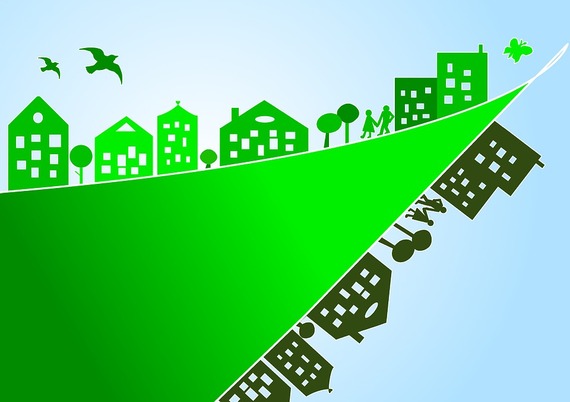Many millennials are busy making their mark in the world and thinking about their future. From seeking out rewarding careers to making good financial decisions, many of today's millennials are smart and future-focused. Living a sustainable or 'green' lifestyle also needs to be a high priority for younger generations since taking steps to take care of the planet and reduce waste can benefit their kid sand generations to come in numerous ways. Here are just a few ways living a sustainable lifestyle can be a form of philanthropy:
Reduces Wasteful Spending
Spending money may not seem like a harmful activity but wasteful spending can lead to bad habits that drive up debt and make it difficult to save for the future. Millennials who are mindful about their spending have a better chance of preserving their financial future and taking care of their families financially as they grow older. Managing money effectively might involve working with a budget and being proactive about paring down costs. This will make it that much easier to give back in another way -- by making charitable contributions.
Reduces Landfills
Imagine a future where kids couldn't play in a playground because their neighborhood was full of landfills. Or, you couldn't go on a relaxing retreat in nature because parks and forests had been converted into landfills to accommodate for all the plastic and non-biodegradable materials we throw in the trash. Younger generations who only by products made with recyclable materials could prevent these types of situations from happening. They can commit to living an eco-friendly lifestyle by using reusable water bottles, buying recyclable cups, and refraining from buying products from manufacturers that don't have sustainable practices.
Changes Carbon Footprint
Whether it's making a long commute to work every day or using up excessive amounts of electricity at home, there are many ways we contribute to the carbon footprint every single day. Living a sustainable lifestyle by relying on renewable resources for energy and using the car less can help to reduce our carbon footprint and preserve our beautiful environment. Future generations can benefit from cleaner air and learn how to make use of renewable energy resources.
Promotes Energy Efficiency
From fuel-efficient cars to home appliances, there are now plenty of options out there to buy everyday use items that use less energy. Taking the time to find energy-efficient big-ticket items such as a car, refrigerator, lighting fixtures, and other bigger purchases is just one way to do our part for the planet -- and possibly help future generations in the process. Families that share their sustainable living practices with their children can encourage their children to make similar spending decisions as they get older.
Supports Fair Trade Workers
Millennials who choose to buy Fair Trade goods from companies that pay their workers fair wages and are committed to sustainable practices make a statement about their spending decisions and show their support for workers in third world countries. Buying Fair Trade, eco-friendly products supports both workers and the planet, making this another way to 'give back'.
Living a sustainable lifestyle can be a philanthropic effort for today's millennials and other generations that want a better future for their families. From changing our carbon footprint to buying Fair Trade products, consider adopting some of these sustainable living practices to give back to future generations.
For more articles and info on Richard Maize, visit his website HERE

